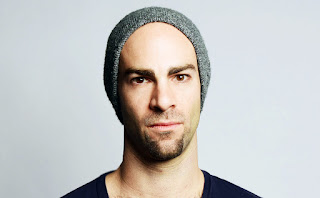Jared Schonig's 'Two Takes': An experiment in contrasting perspectives on the same music
Jazz drumming ranges from a service position in the music to a magnetic force generating everything from
 |
| Jared Schonig earns a living mainly on Broadway. |
creation to execution. In "Two Takes" (Anzic Records), Jared Schonig spreads the more activist role widely by presenting original compositions in two forms: big band and quintet. Each has its own CD covering the same material set in a different order.
The small group honors the combo tradition in the way it maximizes solo space. Yet Schonig's choice of sidemen doesn't parade its individuality as much as the musicians honor the new material; as an ensemble, the quintet works well. Driven by the creator/boss, they are Marquis Hill, trumpet; Luis Perdomo, piano and Rhodes electric piano; Godwin Louis, alto saxophone, and Matt Clohesy, bass.
To emphasize the solo contributions, Schonig inserts three solo drum interludes within the program of his nine compositions, and starts things off with a brief introduction to the first tune, "White Out." The ensemble quality shows tight rapport, and the solos take off from a high-energy background, as Hill's trumpet does in "Eight Twenty," following Louis' buoyant alto solo. Everyone sounds at home in the setting. Colors are slightly varied from piece to piece, with "Sound Evidence" standing out for its muted trumpet and foundational Clohesy solo. The relaxed but sometimes driving essence of the pieces is further varied by the brooding "Tig Mack," on which pianist Perdomo is remarkably eloquent, and the blues-based "Sabotage."
The defining character of such pieces is carried over in the big-band recording, where Schonig has entrusted his compositions to a roster of skillful arrangers. Alan Ferber handles "Sabotage" imaginatively, distinguishing the band's instrumental choirs in contrast with unison passages. Big accents dot this arrangement and others, with precisely timed outbursts. The estimable Jim McNeely handled "White Out" with subtlety in the way ensemble statements are spread out. Trumpet soloist Scott Wendholt has lots to say, but like all the soloists on the big-band disc, he says it succinctly.
Other standout solos include Marshall Gilkes' wide-ranging trombone and Nir Felder's bluesy guitar in "Sound Evidence," characterized by brief phrases, with the ensemble statements spread out. Muted trumpet and flute sonorities color the theme, which Schonig underlines on brushes.
The dour "Gibbs St." ends both discs, moody and urbanely reflective. Donny McCaslin is ideal for characterizing the big-band version with his sax solo. In the quintet version, the interplay between Hill and Louis is just as appropriate in its blend of rumination and intensity.
All told, this project exerts hypnotizing power in both settings, and the leader — without overshadowing his colleagues — never settles for the routine service role. He's front and center on drums, while remaining fully attentive to the collegiality that helps represent him as a composer, a function he justly considers equally important.



Comments
Post a Comment